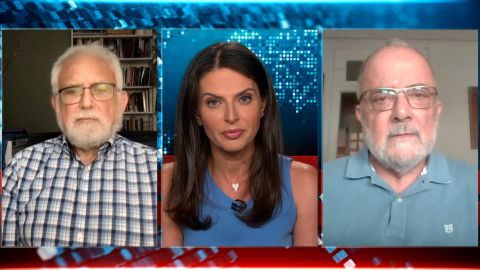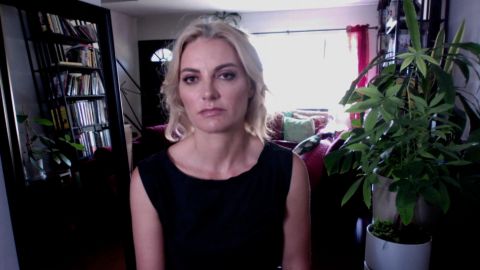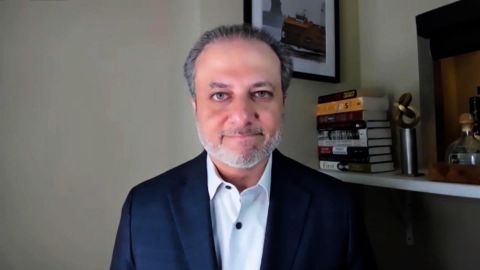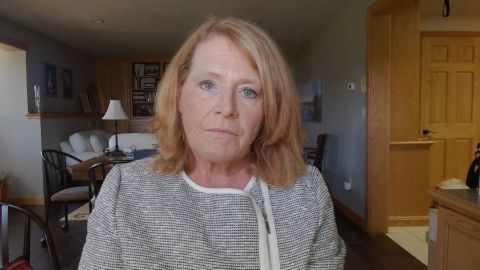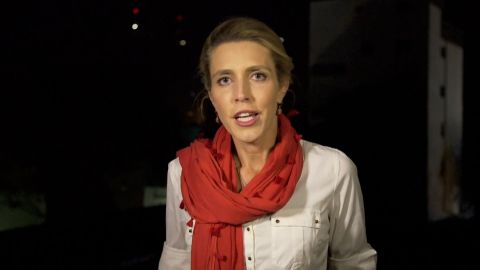Read Transcript EXPAND
BIANNA GOLODRYGA: Well, frightening details. That’s how Senator Dick Durbin described the testimony of former acting attorney general, Jeffrey Rosen. Rosen testified over the weekend about what happened at the Justice Department during the waning days of the Trump administration. Our next guest, former U.S. attorney, Preet Bharara, said the relations were pretty stunning. And here he is talking to Walter Isaacson.
(BEGIN VIDEO CLIP)
WALTER ISAACSON: Thank you, Bianna. And Preet Bharara, welcome to the show.
PREET BHARARA, FORMER U.S. ATTORNEY FOR THE SOUTHERN DISTRICT OF NEW YORK: Thanks for having me. It’s good to be here.
ISAACSON: The former acting attorney general, Jeffrey Rosen, just gave astonishing testimony. Seven hours of testimony about Donald Trump’s attempt to subvert the election. Walk us through that testimony and your thoughts about it.
BHARARA: So, I love to see a transcript. I love to get my hands on that hot transcript. I’ve seen some reporting about what he said. And what we do know, we know we don’t have the full testimony, all the language and all the information, is pretty stunning and it should get more attention than it’s gotten. And basically, what Jeffrey Rosen details as the acting attorney general in the final days and weeks of the Trump administration, after even Bill Barr, a staunch supporter of the president left for various reasons that we can speculate on, says that again and again the president of the United States, and some of this is documented by contemporaneous notes taken by his deputy, tried to get Jeffrey Rosen, the head official of the Justice Department, the top legal officer in the country, to take actions to overturn the election. Among other things, Donald Trump was sort of conspiring whether I can use that, even though it’s a legal term, with another official lower down in the Justice Department, Jeffrey Clark, who was the acting head of the Civil Division. And they had come up with a scheme whereby they would Jeffrey Rosen, the person you mentioned, to author a letter, to sign a letter to Georgia officials and to other officials basically saying, there are problems with the election, without evidence, and that you would be within your rights to convene a special session and reject the election. So, you have multiple occasions where the president was trying through his chief legal officer of the country, Jeffrey Rosen, and other people around Jeffrey Rosen to try to get action taken by the election. One of the most interesting bits of reporting about what apparently happened is that at various junctures, Jeffrey Rosen stood his ground along with the deputy attorney general at the time, Richard Donoghue, and said, no, we’re not doing this. We can’t snap our fingers and change the election to which — and this to me is very stunning — to which Donald Trump says, and it’s part of the pattern, I get — something like, I get that. Just say the election was corrupt and leave the rest to me. So, you know, I can go on about other details that have been reported. But in essence, I think the people who are saying this was something of an attempted coupe are not wrong. They’re not far off the mark. I don’t think it’s an exaggeration. And — but for people who said, we’re not doing this — and by the way, also, the reporting about the testimony is that at some point, Trump was going to replace Jeffrey Rosen with his more, you know, partial person, Jeffrey Clark, who was going to go along with the program. And that was met with a threat of mass resignation of the Justice Department. So, I know we’ve heard this tale before. We know about Donald Trump trying to subvert the election, perpetrate the big lie, calling Georgia officials himself, but this stuff is in many ways more stunning than the old stuff.
ISAACSON: What laws might that be violating?
BHARARA: That’s an interesting question. It could be violating, you know, various laws in various states. I think it’s a little bit tough to do that because the argument would be made and I don’t know all the facts and I don’t know all circumstances, I don’t know the local laws in Georgia, and there’s some federal laws that may apply. But, you know, we trust presidents to act within norms with respect to their Justice Department, to stay out of prosecutions and enforcement actions, specifically, particularly when they’re — for the benefit of that person in office personally. And the president, as Jeffrey Rosen and others, you know, responded in this way for this reason, the president was acting his personal capacity as a candidate. Was he interfering with the election? Was he obstructing a proceeding? I think we need more information for that. But the defense would be, I was doing things even though they’re out of the ordinary and not within the norm and might have been an impeachable offense, it maybe that I was allowed to direct my people to do whatever they want. And at the end of the day, by the way, it didn’t happen. This is the repeated defense that Trump and his allies and lawyers have used with respect to the findings in the Mueller Report. At the end of the day, the thing didn’t happen.
ISAACSON: You mentioned Richard Donoghue took notes at the time. You know Richard Donoghue. Tell me about him and what you make of the notes.
BHARARA: So, I do know Richard Donoghue and had a very good opinion of him when he was attorney in the Southern District of New York. He was the chief of the Criminal Division for a period of time in the Eastern District of New York, across the river. Professional, good lawyer, integrity. He took notes like anybody does. The history of our understanding of President Trump, myself included, is that there are often concerns about what he’s going say and how he’s going to represent conversations later. That’s why Jim Comey took contemporaneous notes, that’s why the Georgia official recorded the phone call. That’s why when the president called me, and I didn’t return the call, I briefly considered taping the call but I thought that was a bridge too far. So, it was a smart thing that he did. The notes themselves, I think, given that they were contemporaneous and that Richard Donoghue is a person who I think is honest and trustworthy, probably accurately reflect what the president said.
ISAACSON: Jeffrey Clark, who you mentioned was a person that Trump relied upon at the Justice Department. Is there a case against him that you see and what you know of the testimony and notes?
BHARARA: I don’t see such a case. I think there might have been — there might be questions given what additional evidence comes forward, if he was violating some oath as an attorney. If he, you know, was trying to make arguments in court, although they didn’t happen, right? These are all drafts. So, I think it’s a little bit more difficult, you know, to bring an ethics charge or for a bar association to examine what he was doing. But, again, Justice Department officials have wide discretion and authority to do things, which includes unethical things. I think what he was attempting to do was to circumvent the chain of command, what he was attempting to do was to circumvent norms and most importantly, to undue an election without any facts or evidence in cahoots with a political candidate. Not a president. Not the person who his superior but a political candidate. And that’s bad enough without there having been, you know, a criminal law violated.
ISAACSON: Do you consider this almost an attempt at a coup?
BHARARA: Yes. So, you know, some of these words are charged and we’ve heard almost the last number of years people use the word treason casually and some people don’t like the word insurrection. Although, I think January 6th was an insurrection. Coup, I know to various people, scholars including yourself, has a particular meaning. We apply that word other countries. And whether you call it a coup or not, I think it tends to fit what was happening here. You have an election that was decided, definitive evidence that the election was decided in a particular way. There was due process in dozens of scores of legal proceedings, virtually all of which went against the president. And so, I don’t know what else you call it when you have people at a high level in office who have been voted out of office, attempt to remain in office and positions of power, against all law, against all regulation, against all facts. You know, I think attempted coup is not a bad phrase to capture that.
ISAACSON: With everything you’ve seen about the attempts to overturn the past election, including the January 6th insurrection, are you as surprised that the system held?
BHARARA: Yes, I think that’s a good way of saying the glass is half full. I’m not surprised so much as relieved. And if you engage in counter factual, you’re a historian, Walter, and you know that you think about things. You think about the lives of the people you have written about and covered exhaustively. You change a couple of facts. How different would the world have been?
ISAACSON: So, you’re saying we’re just lucky? It could have gone the other way?
BHARARA: A little bit. Yes. I think — look, if Mike Pence and Jeffrey Rosen and Bill Barr, and a number of other people, and the head election officials in Georgia and maybe some folks in Arizona, a handful of people, had done what the president of the United States at the time wanted them to do, I don’t think we would have lost the Republic necessarily but we would have been much closer to it.
ISAACSON: Should we rely on luck?
BHARARA: No, we should not. We should not. But, you know, it takes not only, you know, policies and laws and regulations, it takes good people. And I know, again, that sounds unsatisfactory to folks but, you know, when Nixon did what he did, there was an understanding in the country by both Democrats and Republicans there needed to be accountability and there needed to be reform and there needed to be an inquiry. And now, we’re at a spot — I mean, that’s the most damage I think that Donald Trump has done to the country, that he has caused people to put proximity to power over sort of the strength of the Republic and I don’t know how you get out of that overnight. I think it helps for there to be electoral defeats so that people who, you know, stick their head in the sand and spout nonsense and garbage, whether knowingly or unknowingly, and I think the select committee, if it can do its work with two Republican members, although they’re not members of good standing in the Trump Republican Party at the moment, can shed light in a lot of these things. And I think over time, as we’ve gone back to certain norms, in the Justice Department and elsewhere, what you hope is that good Americans will come to the view in increasing numbers, in an increasing majority that what happened on January 6th and what led up to 6th of January 6th is unacceptable in this country.
ISAACSON: Walk me through the — what must be going through Merrick Garland’s mind? What are his options? What do you think he should do?
BHARARA: So, that might take a while. Merrick Garland is a smart person. He has a very capacious mind. And I don’t envy him, his job, and the difficulty of his job because he’s balancing multiple things. And I think he’s trying to steer a path of doing the right thing in the right way and there’s some institutional considerations that he holds dear. You know, he was a former member of the Justice Department at a high level and also a trial attorney there. And so, there are certain issues relating to deliberate process, privilege, and executive privilege that some people who are Biden supporters don’t like because some information is not coming out and there have been decisions made about continuing to represent the president of the United States — former president of the United States in some litigation that some people who are on the other side of the aisle from Donald Trump doesn’t like. But then on the other hand, he’s trying to make sure that he’s transparent with Congress. So, with respect to the things we’re talking about now, what’s very interesting about Richard Donoghue’s notes, the former acting deputy attorney general, it doesn’t appear to be that that was released or is being looked at as part of an internal DOJ investigation to see what crimes have been committed or what norms have been breached or ethics rules have been violated, but rather, in response to requests from Congress for that information. So, you know, I think he has an interest in making sure that bad conduct comes to light and there’s some transparency. I don’t know how much interest he has, and people can debate this, in making sure that there’s a complete review in reporting of and holding accountable of people who engaged in this semi coup-like behavior toward the end of the administration. I think he would be well served to figure out a way to do that, that doesn’t derail him from other things like civil rights priorities and other issues that are important to the department. But I think it’s a little bit of a tough line for him to walk.
ISAACSON: Governor Andrew Cuomo resigned this week after a lot of sexual misconduct allegations and investigations. But there’s also a story by Ronan Farrow, a great reporting in “The New Yorker” this week, that Governor Cuomo called Valerie Jarrett of the Obama administration to try interfere with the investigation you were doing. Tell me about that and tell me if there’s some things comparable to what Donald Trump did.
BHARARA: Yes. So, I’ve drawn that parallel. You know, it is not a good thing for a political official to, in any way, try to bring their influence to bear on people at the Justice Department or other political figures to put pressure to bear on members of the Justice Department. To engage in an enforcement action against somebody or to hold off on an enforcement action against somebody. You know, you’re not supposed to use the Justice Department to protect allies and to harm and penalize and punished adversaries. And so, the one difference between some of the things that Donald Trump did and what happened in my case, was during the time in 2014, as Ronan Farrow, outlined and it’s confirmed by multiple officials of the White House and the Justice Department, the almost former governor of the State of New York didn’t like being investigated and that is true of a lot of people, whether they’re well-known or powerful or not. And apparently, I’m informed, made a call to one of the top advisors to the president of the United States at the time, Barack Obama, Valerie Jarrett. And it became clear to Valerie Jarrett by her own testimony in the article that it was an inappropriate call. That it was intended in some way to cause me to get brush back from the investigation I was overseeing, which was being conducted by career prosecutors and investigators, by the way, I should say. And she immediately changed the subject or ended the conversation and she reported immediately to the White House Counsel. The White House Counsel reported it immediately to the deputy attorney general of the United States, and the deputy attorney general recounted in the article informed me and said, make whatever use of this is appropriate in your investigation. And we proceeded in that way. Now, yes, the analogy, I think, good faith and reasonable people I think is hard, you know, to criticize. And that is, you have a person who is in some investigative jeopardy, ultimately charges were never brought. We never brought charges. You have someone who is in investigative jeopardy, who tries to pull a political lever to prevent independent prosecutors from doing what they’re supposed to do, and that’s wrong. And it wasn’t allowed to go any further. The difference between that case and what we’ve seen in the Trump administration is the members of the White House, unlike Valerie Jarrett, you know, were solicitous of this kind of conduct. Mark Meadows, at the request of the president, almost certainly made his own phone calls. So, rather than shutting down the requests and saying, no, that’s not appropriate. I’m not allowed to get involved. You’re talking about this in your capacity as a candidate, Justice Department is supposed to be independent on enforcement actions. No. He took the baton and ran with it and made his own calls to the Justice Department. So, whether there’s an analogy between what two different politicians have done, there’s no real analogue with respect to how the Justice Department handled it.
ISAACSON: Tell me about your phone call with Donald Trump.
BHARARA: So, the phone call — so, I don’t know how many folks are aware of this. You know, I stayed on as U.S. attorney at the request of Donald Trump because I thought I was going to be able to do my job independently, which is the mandate of being the U.S. attorney anywhere but certainly in the Southern District of New York. And he began calling me a couple of times during the transition. I reported those phone calls. Made a note of those phone calls. But then he called me when he was actually the sitting president of the United States in March of 2017. And a message was left by the secretary to the president. And I thought about what I should do. Now, at the time, there were calls for investigations for Donald Trump based on the (INAUDIBLE) it’s caused and some other things. I had no relationship with Donald Trump. Ordinarily, if this was going to be something related to my job, it would be the attorney general who would be calling me. Jeff Sessions was nowhere to be seemed. It seemed to be a side phone call to me. And based on my, you know, sense of how the world works and also for my protection, and also for Donald Trump’s protection, where we wouldn’t know and be able to prove why he was calling, what he was saying in the call, how would it look? So, I respectfully called the secretary back and said I decline to speak to the president unless I know what it’s about or it involved the attorney general. And the next day, I was asked for my letter of resignation. That decision, by the way, which likely cost me the job and the job that I love but I had no entitlement to serve in any longer than I had, that decision was born out as correct time and time again by the experiences of Jim Comey, the experiences of the Georgia officials, the experiences of Jeffrey Clark. I have no doubt — I mean, at the beginning I would say, you know, I’m not sure how this would have played out. I have no doubt in my mind now given how Donald Trump and Mark knows and others that you have mentioned, have tried to weaponize the Justice Department, that at some point, if I had played along with Donald Trump, wanting to have a side relationship with the sitting Senate-confirmed U.S. attorney in Manhattan, which has jurisdiction over his properties and his businesses and his organization, that I would have been asked to do something inappropriate at some time. By the way, the other thing that’s worth mentioning in this whole business of the end of the Trump administration is there was a sitting U.S. attorney in Atlanta who is now being reported, and maybe Jeffrey Rosen says something about this, who was forced out. Was made to quit in a way that’s parallel to mine and other people’s experiences. Apparently, because he wasn’t doing enough to cast doubt on the election in Georgia. So, nothing good could have come of having a relationship and being cultivated by the sitting president of the United States when you’re supposed to be an independent-minded prosecutor.
ISAACSON: Preet Bharara, thank you so much for joining us.
BHARARA: Thank you, Walter. Good to be here.
About This Episode EXPAND
Barnett Rubin and Ahmed discuss the situation in Afghanistan. Clarissa Ward gives an update on the ground in Kabul. Heidi Heitkamp reacts to two bills that passed through the Senate this week. Filmmaker Lucy Walker discusses her new film “Bring Your Own Brigade.” Preet Bharara weighs in on the Cuomo resignation and the Rosen testimony.
LEARN MORE
